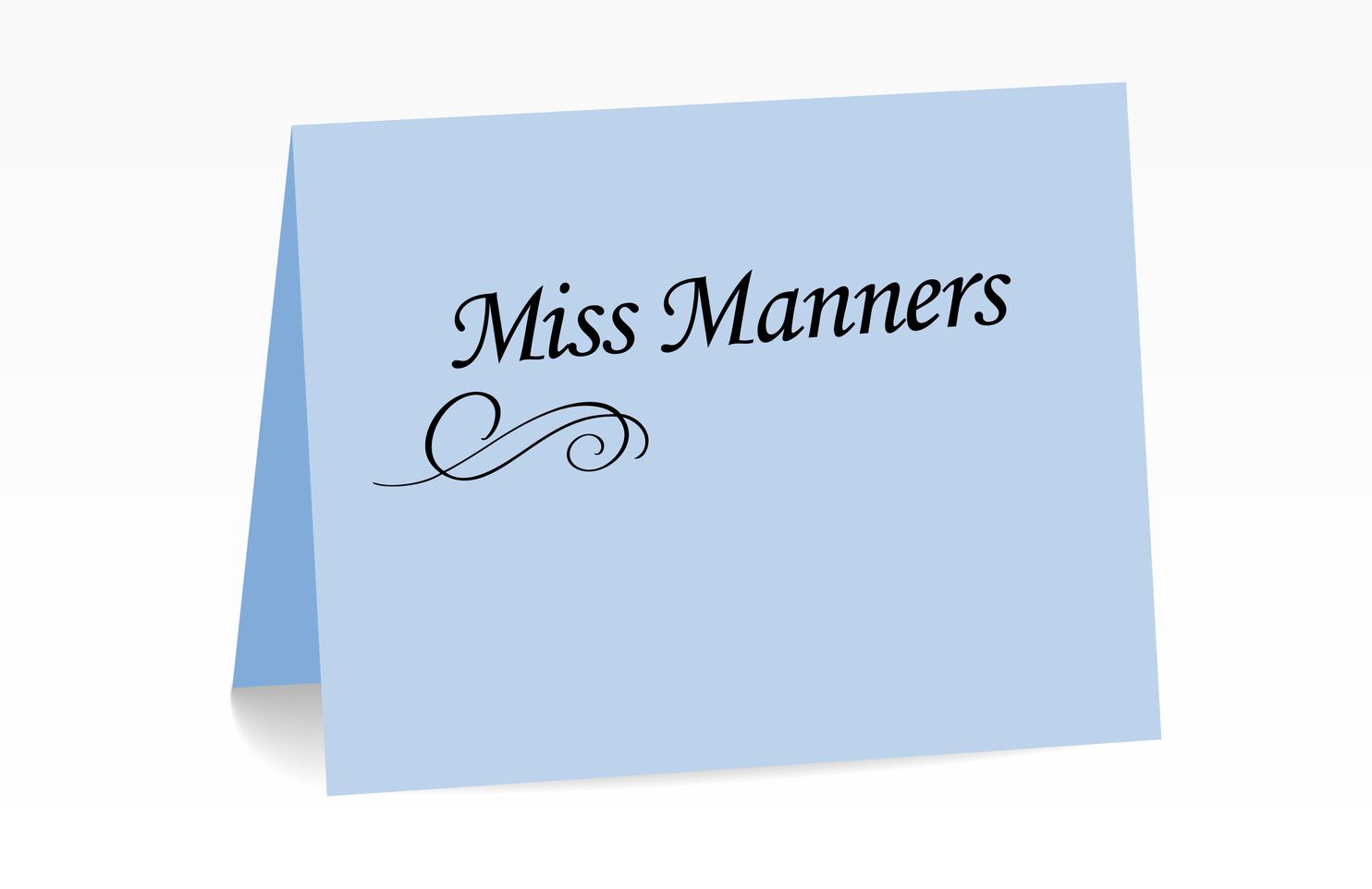Miss Manners: Ungrateful golfers don’t bow when I clap

Dear Miss Manners: My question is how to respond to applause.
Golfers get it on every green, even if they have missed two putts. Some do not acknowledge it at all; some just raise a hand to the waist or even lower. The better ones touch the front of their cap or wave to the crowd, both rather classy gestures.
Most efforts are desultory and perfunctory at best. It’s clearly a bother to some, as if they’d rather not have any audience at all (perhaps to distract them). Some overdo it, I think.
I think that golfers are entertainers and should follow some rules. In a theater, actors bow and acknowledge applause until they leave the stage or drop the curtain. They know who is paying their salaries. Golfers seem ungrateful.
How entertaining golf is as a spectator sport, Miss Manners will leave to those more knowledgeable than herself. She agrees that, generally speaking, professional sports, like theater, are entertainment.
The recent invention of street applause — for first responders and teachers — is more akin to a traditional bow and should be acknowledged as such (assuming those being thanked are actually present). But actors are not expected to take bows mid-monologue, and athletes, doctors and teachers cannot be faulted for concentrating on their game.
What to do, then, when the sport does not establish a time for accepting the trophy, or for protesting that the victory would not have been possible without your teammates, your mother, your significant other, your agent and your fans? A tip of the hat or raised hand seems a reasonable — and grateful — compromise.
Dear Miss Manners: When traveling by public transportation, is it proper to move from a seat next to another person to one next to an empty seat?
Americans have a tendency to spread out when we can, so I generally expect that the person next to me (especially if she or he is seated by the window and can’t easily move) would appreciate the extra space. But I don’t wish to give offense if my moving is likely to cause my seatmate to think I find his or her proximity unpleasant.
The pandemic has changed so many things about our daily lives that it is noticeable when something stays the same.
Switching seats was never rude — so long as it was done with an absent-minded look, as if you thought you were getting off, realized this was not your stop, and sat back down in the nearest available seat. Miss Manners insisted on this bit of playacting so as to preserve the possibility that your action was not a complaint about size, body odor or telephone habits.
It is all the more useful to avoid implying that a person may not only be carrying a fatal disease, and is heartless enough to knowingly inflict it on fellow travelers.
New Miss Manners columns are posted Monday through Saturday on washingtonpost.com/advice. You can send questions to Miss Manners at her website, missmanners.com. You can also follow her @RealMissManners.
2020, by Judith Martin






